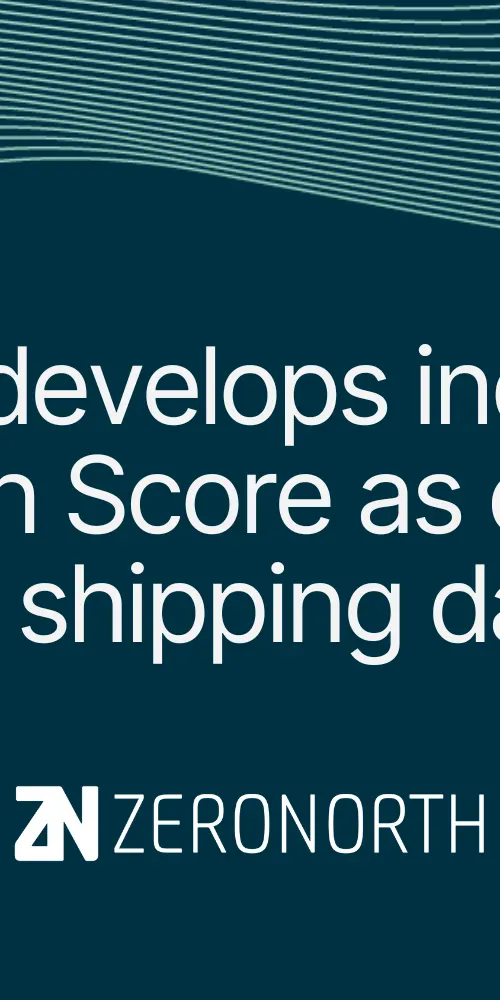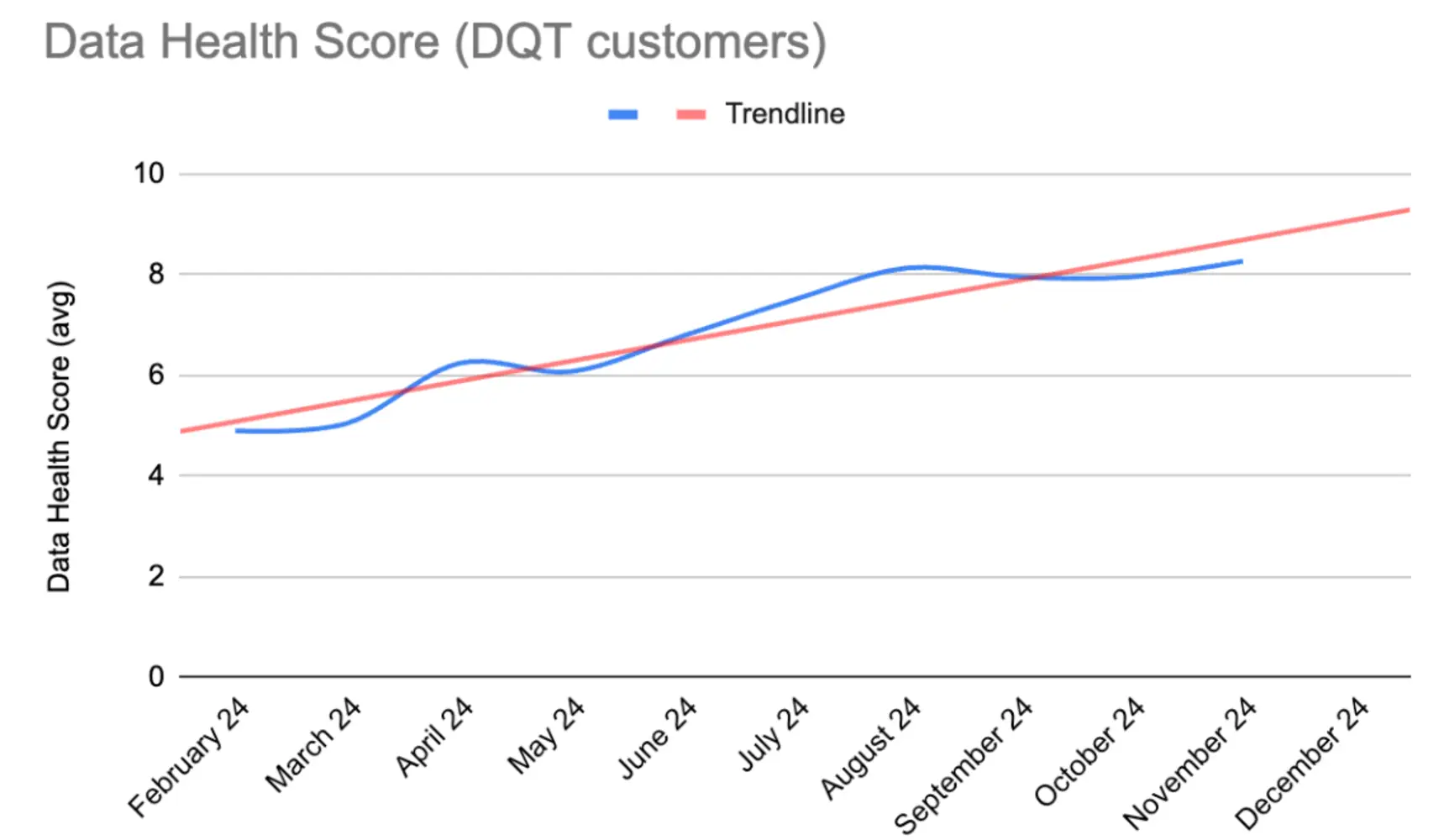ZeroNorth develops industry-first Data Health Score as catalyst for improving shipping data quality
The shipping industry’s optimisation and decarbonisation efforts depend on reliable, high-quality data. Traditionally, vessel performance has been tracked through manual noon reports, leaving room for errors and inconsistencies. With growing regulatory demands, flawed or incomplete data can be costly and limit the effectiveness of digital platforms and fuel models. To address this challenge, ZeroNorth has introduced the industry’s first Data Health Score as a catalyst for shipping companies to measure and improve their data quality. The results are compelling: in 2024, ZeroNorth’s customers increased their Data Health Score by an average of 67%.

The growing importance of reliable data
With fuel costs constituting up to 60% of total voyage expenses, a vessel’s fuel performance plays a crucial role in its profitability. Missing or incorrect performance data can undermine the effectiveness of fuel models that predict voyage costs and as a consequence lead to inaccurate predictions.
As environmental regulations like the EU Emissions Trading System (EU ETS) and FuelEU Maritime tighten, accurate reporting has never been more important. “Reliable data is fundamental to both operational efficiency and regulatory compliance,” says Troels Schiermer Tophøj, VP of Data Engineering at ZeroNorth. “Inaccurate data or missing reports can create discrepancies worth thousands of dollars,” he explains.
ZeroNorth estimates that a single missing report on a 30-day EU voyage could result in discrepancies of USD 18,000 in bunker costs and more than USD 2,000 in unaccounted emissions allowances (EUAs), while also posing a risk for commercial disputes between charterer and owner¹. Similarly, errors in fuel consumption or port reporting can invalidate compliance data, adding further costs and inefficiencies. “By identifying and addressing these errors early, we help customers avoid costly outcomes,” says Tophøj.
If dependent on noon reports and manual data entry, achieving high data quality is no small challenge for shipping companies. To validate customer data and drive improvements, ZeroNorth established a dedicated data quality team in 2024. The team, led by Tophøj, works closely with customers, detecting and resolving errors, recovering missing reports, and ensuring compliance with regulations like EU ETS.
To amplify their impact, the team developed ZeroNorth’s Data Health Score, which, as Tophøj explains, is “a key indicator which provides ZeroNorth and the customers with a clear and common understanding of their reporting accuracy and highlights areas for improvement.”
How the Data Health Score works
The Data Health Score calculates the ratio of error-free reports to the total number of submitted reports, assessing completeness, accuracy, and logical consistency. This gives the data quality team a clear overview of reporting accuracy and areas that require attention.
“For example, a Data Health Score of 3 out of 10 means that only 30% of the submitted reports are error-free, while the remaining 70% contain issues such as missing information, inaccuracies, or logical inconsistencies. Based on this, our team identifies specific areas for improvement - both at the vessel level and for individual data fields - and works with customers to address them,” says Tophøj.
But the data quality team’s work goes beyond error detection. “It’s also about helping customers foster a strong reporting culture where accuracy matters,” says Tophøj, a goal the team supports through their daily interactions with vessel crews and weekly, monthly, and quarterly evaluations with customers.
Measurable impact
“All our customers have seen an increase in their Data Health Score in 2024,” notes Tophøj. On average, customers have increased their Health Score by 67% since partnering with ZeroNorth’s team to improve their data quality.

Addressing an industry-wide challenge
With the Data Health Score, ZeroNorth seeks to contribute to solving the industry-wide challenge of data quality. This initiative is another example of ZeroNorth’s efforts to maximise the potential of digital solutions and optimisation efforts across the industry. Previously, the company worked alongside industry leaders to assess and improve fuel model accuracy.
Reflecting on the impact of the Data Health Score, Tophøj concludes, “We’re proud that our work and the Data Health Score is helping our customers address a challenging, industry-wide problem. Especially looking at the complex demands shipping companies face today, improving data quality has more tangible business value than ever before.”
________________
¹The calculation assumes a 30-day EU voyage with daily fuel consumption of 25 tonnes of VLSFO and 5 tonnes of MDO. Bunker costs are estimated at $600/tonne, and emissions factors for VLSFO and MDO are 77.85 tonnes/day and 16.03 tonnes/day of CO₂, respectively. Emission allowances (EUAs) are priced at $60/EUA, with 37.55 EUAs required per day of the voyage. The discrepancy arises from differences between data reported by the owner and the charterer due to a single missing report.
Read related stories:
Costamare Bulkers and ZeroNorth: improving data quality to drive shipping efficiency and compliance